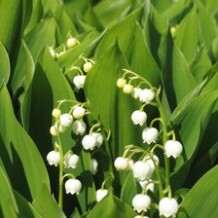4 Herbs For Asthma Herbal Treatment – Safe And Effective Remedies
|

|
Asthma is a condition which affects the respiratory tract and lungs. It comes with inflammation that can make breathing difficult due to increased swelling in the airways.
Although this condition is normally treated with chemical and steroid medicines, there are some great natural herbs that can provide help to the condition without the side effects of chemical medicines. Even though asthma herbal treatments can be more effective and much safer, you should always discuss these treatments together with your healthcare provider.
Butterbur
This herb that grows in Europe, Asia and North America has been found very effective as an asthma herbal treatment. The healing qualities of butterbur come from two compounds called petasin and isopetasin, which can effectively reduce muscle spasms in the respiratory tract; they are both also anti-inflammatory agents.
A 2004 study published in the journal of Clinical and Experimental Allergy found that butterbur increased the anti-inflammatory effects of inhalers.
There has also been a study that just looked at butterbur extract for treating asthma on its own. This study, published in the journal of Alternative Medicine Review in 2004, found that almost 40% of people experienced improvement to their symptoms.
There are many ways to consume this asthma herbal treatment, such as teas and capsules. The raw herb should not be consumed because it contains harmful toxins.
Boswellia
This traditional Ayurvedic herb can help relieve the symptoms of asthma and reduce its inflammatory attacks. A 2010 study published in the Journal of Clinical Biochemistry found that a combination of boswellia, licorice root and turmeric root significantly reduced the inflammatory responses during asthma attacks.
It is thought that boswellia is a good asthma herbal treatment because of its ability to control compounds called leukotrienes and prevent them from forming. These leukotrienes, when entered in the lungs, cause the narrowing down of the airways.
A 1998 study published in the European Journal of Medical Research found that 70% of participants got help with their asthma symptoms by taking boswellia. They took boswellia for six weeks, three times a day.
There are a lot of boswellia supplements available to choose from.
Mullein
This herb has a long history of use in treating various respiratory problems. According to a 2011 Livestrong article, this herb contains mucilage that can soothe the respiratory tract. It also has compounds called triterpene saponins and caffeic acid, which can both reduce the swelling in the airways. However, this has not been shown by clinical studies, even though a lot of people are reporting the positive benefits of this herb.
You can find great herbal teas and extracts of mullein that you could try as your asthma herbal treatment.
Turmeric
This spice herb can offer great relief to asthma symptoms. Much of this is due to its excellent anti-inflammatory qualities.
According to an Align Life article from 2013, “turmeric helps dilate blood vessels promoting circulation”. This increased circulation will in turn help reduce muscle spasms and relax the muscles in the airways, allowing you to breath naturally again. It is also a good source of vitamins and nutrients that will help your immune system stay strong.
The amounts recommended for consumption depend on which form of turmeric you want to use. According to the Turmeric for Health website, the following daily dosages of this asthma herbal treatment are recommended for use:
* 3 grams of cut root
* 3 grams of dried and powdered root
* 3 x 600 mg of curcumin powder
* 90 drops of fluid extract (1:1)
* 4 x 30 drops of tincture (1:2)
|
Follow this site
|



















Recent Comments